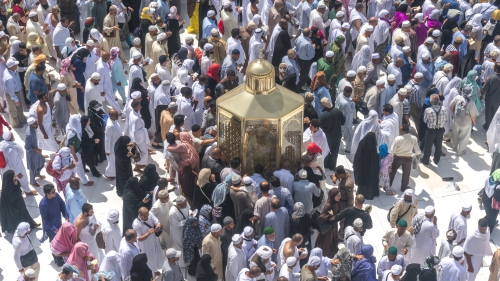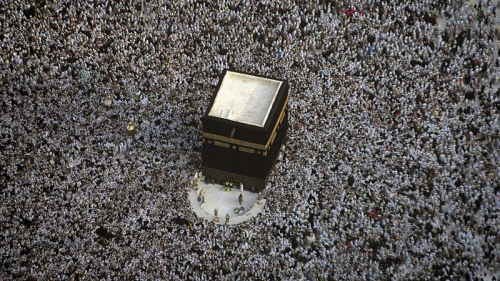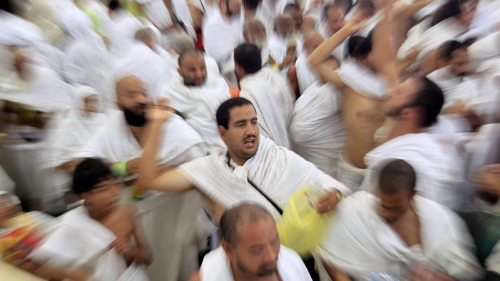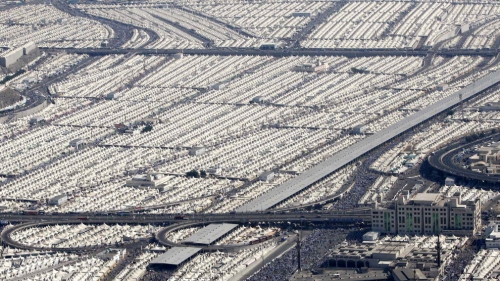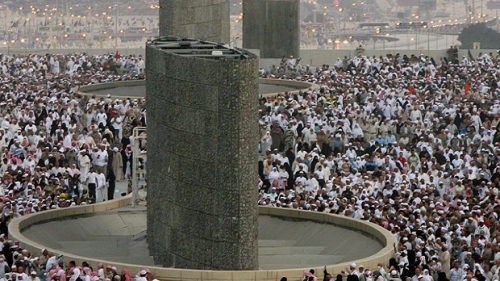Man and Human Development in Islam

Man, according to the Islamic message, is not a fallen being as the Christianity asserts. His existence on earth is not a sentence passed on to him by God on account of what transpired between Adam and his wife Eve in the Garden of Eden. On the contrary, man is a vicegerent on earth (khalifah) entrusted with the honourable task of inhabiting the earth in accordance with the divine guidance given to him.
This terrestrial life to man serves as a platform either for elevating his status over that of angels, should he abide by the divinely prescribed rules and regulations, or for debasing his self lower than the rank of animals, should he turn away from truth and dazed and lost wander aimlessly amid the innumerable and awesome wonders of creation. Man is the crown of God’s act of creation. God created man by His own Hands and in His own image. (Sahih Muslim) For man and his principled assignment as vicegerent everything else on earth has been created, and to him and the expediency and services of his mission everything else has been subjected.
God created man with the primordial natural disposition (fitrah) to thirst for and worship his Creator. God, therefore, knowing best the character of man, his needs and weaknesses, on sending Adam and Eve to the earth to assume their duty of vicegerency, revealed to them that He will never forsake them and their progeny. God promised that His guidance and signs will be coming to mankind to guide them and will perpetually stay with them, and “Whosoever follows My guidance, on them shall be no fear, nor shall they grieve”. (al-Baqarah, 38)
“…Whosoever follows My guidance, will not lose his way, nor fall in misery”. (Ta Ha, 123)
By God’s guidance and signs it is meant the religion of Islam which was preached by every prophet from Adam as the first messenger, to Muhammad (pbuh) as the last and seal of all messengers. God’s divine guidance enables man to remain strong, rational, content and responsible while on earth. It makes him capable of keeping up the focus of his undertakings on worshipping his Creator and Master in his every action, word and thought. God says in the Qur’an that He has created both Jinns and men only that they may worship and serve Him. (al-Dhariyat, 56)
On the other hand, in the event of man’s rejection of God’s messages and guidance, the repercussions will be costly. The Qur’an says: “But those who reject Faith and belie Our Signs, they shall be Companions of the Fire; they shall abide therein”. (al-Baqarah, 39)
“But whosoever turns away from My Message, verily for him is a life narrowed down, and We shall raise him up blind on the Day of Judgment”. (Ta Ha, 124)
Furthermore, man is created as a social being endued with free will, passion and emotions, which could lead him either to the highest or drug him to the lowest ebb of creation. Humanity is but a big family with the same origin, mission and purpose. People have been divided into nations and tribes only to know each other, learn from each other, and cooperate at various levels in righteousness and piety, not that they may loathe each other, conspire against and exploit each other. They are to explore the universe and within a conceptual framework rendered to them by revelation try to make their existence on earth as convenient, meaningful and productive as possible, that is, to create and leave behind a virtuous legacy in the form of virtuous cultures and civilizations. However, no sooner does this universal equilibrium become impaired and vitiated, than man’s relationship with God, his peers and the whole of the environment starts to degenerate.
God says about this: “O mankind! We created you from a single (pair) of a male and a female and made you into nations and tribes, that you may know each other (not that you may despise each other). Verily the most honoured of you in the sight of Allah is (he who is) the most righteous of you. And Allah has full knowledge and is well acquainted (with all things)”. (al-Hujurat, 13)
“And among His Signs is the creation of the heavens and the earth, and the variations in your languages and your colours: verily in that are Signs for those who know”. (al-Rum, 22)
Islam with its unique tawhidic (God’s Oneness) worldview champions that Muslims are brothers to each other and their similitude is like a wall whose bricks enforce and rely on each other. They are like a solid cemented structure held together in unity and strength, each part contributing strength in its own way, and the whole held together not like a mass, but like a living organism. Muslims are furthermore related to each other in such a way that if one of them (a part of an organic and formidable formation called the Ummah, Community) is troubled by a problem of any kind, the rest of the body parts will remain disturbed and restless until the matter became solved. (Sahih Muslim)
Man, it follows, stands at the centre of all creation. He, likewise, stands at the centre of all his cultural and civilization legacies. They are all created by him and for him, and are meant only for him. The idea of man, therefore, is indicative of productivity, discovery, creative force and continuous cultural and civilizational evolutions and outputs.
Not only for his own bequests, but also for the whole of the earth, is man responsible and will be held accountable on the Day of Judgment. Such are the profundity and scale of his earthly mission that if the earth is sustained and kept clean, healthy and intact, that would imply that man has lived up to the requirements of his noble mission. However, if the earth is dealt with irresponsibly and avariciously, resulting in it to become ravaged and uninhabitable, that would imply that man has betrayed his Creator and Master and the mission entrusted to him, and that he has been untrue to himself and his primordial inborn moral fibre.
Indeed, it was due to all this that when Prophet Muhammad (pbuh) migrated from Makkah to Madinah, aiming to create a dynamic prototype Islamic city and lay down the foundation of a first example of sustainable Islamic architecture, sustainable Islamic urban development and, by extension, sustainable Islamic culture and civilization, he focused first and foremost on human development. He taught that without adequate and holistic human development, no other development in a long and demanding community building process will genuinely prove successful. He also taught that society is an organization whose most basic and, at the same time, most significant configuration substance is its people or individuals. For that reason, a relationship between society and its substance and basic units or blocks is a causal one, the latter, namely individuals as the basic social units, being the cause, and society with its wide spectrum of tasks and aspirations, being the effect.
This means that the health or the development of a society depends mainly on the health and development of its substance and basic units or blocks, that is, its people as human capital. An improvement in the minds and souls of individuals inevitably and proportionately leads to an improvement in society. Likewise, any degeneration in the minds and souls of individuals inescapably and proportionately leads to a degeneration of society. It stands to reason that the best method in diagnosing and remedying the ills of a society is by identifying the overall wellbeing and the contributions and roles of individuals as part of its focal interest, that is to say, the method that seeks out and deals with the root causes of a problem.
For the reason of creating and nurturing human capital in the nascent city-state of Madinah the Prophet (pbuh) upon arriving disclosed to the assembled crowd some of the paths that invariably lead towards Jannah (Paradise) in the Hereafter, as well as towards individual and collective felicity in this world. The paths are: 1) implementing and spreading peace and concord wherever possible and by whatever lawful means; 2) sharing and compassion; 3) maintaining good relations with relatives (as well as with others); and 4) praying at night when everybody else is asleep.
For the same reason the content of the Prophet’s sermon during the first Friday prayer (Jumu’ah) in Madinah -- as well as the contents of his other sermons at that juncture -- emphasized the importance of faith (iman), taking hold of the good and leaving the evil, brotherhood, sincerity, steadfastness, gratefulness for the blessing of Islam, the significance of helping one another in righteousness and piety and not in sin and rancour, the common cause of Muslims, and the like.
Some of the underlying societal qualities and features of Islam, such as commitment to the established cause, justice, equality, and mutual understanding and cooperation, have also been demonstrated as early as during the exercise of determining the site of the Prophet’s mosque and the marking out of its boundaries.
The Prophet’s scheme of personality and community building reached its climax when he legislated the system of mu’akhah (brotherly association) among the Migrants (Muhajirs) from Makkah and the Helpers (Ansar) of Madinah. The mu’akhah included 90 men, 45 from either side. So binding was the treaty that the Migrants for sometimes were the heirs of the Helpers, and vice versa, instead of their own kindred by blood. However, verse 33 of the Qur’anic chapter al-Nisa’ was revealed and the matter of the Migrants and Helpers inheriting from one another was rescinded.
Nurturing exemplary community members in Madinah as human capital was additionally dealt with by God’s direct intervention, which prescribed directives that targeted at both men’s and women’s steady spiritual development, and defining their roles and standing in the society’s speedy growth. For instance, in the night of al-Mi’raj, which occurred sometime between one and two years before the Hijrah, the institution of prayer (Salah) was prescribed to the Muslims. Initially, the prayers of those not travelling and of those travelling had been of two rak’ahs (units) except for the Maghrib (sunset) prayer which was always three rak’ahs. But about a month after the arrival of the Prophet (pbuh) in Madinah two rak’ahs in Zuhr (noon), ‘Asr (mid afternoon) and ‘Isha’ (evening) prayers were added to the prayers of those who were not travelling.
Certainly, this addition had scores of benefits for the spiritual maturity of many Muslims. Some of them had just entered the fold of the new life code and were exposed to the unprecedented community building challenges, given that the task of one’s prayers is to restrain oneself from shameful and evil deeds (al-‘Ankabut 45), and to foster honesty, goodness, conformity and dedication. As the Prophet (pbuh) experienced a midnight journey from al-Masjid al-Haram to al-Masjid al-Aqsa (al-Isra’), whence he travelled to the seven heavens (al-Mi’raj) where the prayer commandment was decreed, every human soul, similarly, ought to undergo a journey of its own in its religious growth in life. Praying five times a day at the divinely appointed times and as many rak’ahs as prescribed denotes the most precious asset that one may possess all through the long and thorny journey. Every single prayer is expected to elevate its executor a step, or a degree, off the wickedness and confines of this world and towards the spiritual fulfilment. So, the bigger the number of those who are willingly and enthusiastically on the said spiritual journey, ever ready to better themselves and those around them, the better the prospects for their ideals to materialize and flourish become.
For the purpose of creating healthy and upright individuals who will constitute a healthy and righteous society, the prescription of Adhan (calling to prayers), Siyam (fast), Zakah (the alms), Sadaqah al-fitr (charity of fast-breaking), Jihad (struggle for the holy cause), and some other legislative moves with regard to halal (lawful) and haram (forbidden) -- all these came about during the earliest Madinah period.
Finally, shortly after arriving in Madinah, the Prophet (pbuh) also organized the relationship between the various inhabitants of Madinah, including the Jews, and recorded it in a document dubbed the Constitution of Madinah. The commitments of each group within Madinah and their rights and duties were comprehensively enshrined in the document.
To the critical significance of human development and human capital in generating cultural and civilizational value attests the following story. The second Caliph, ‘Umar b. al-Khattab, was sitting with a group of companions and he asked: “Let each one make a wish!” Someone said: “I wish if this house was filled with gold so I could spend it for the sake of Allah”. ‘Umar asked the people again: “Make a wish!” Someone else said: “I wish if this house was filled with pearls and with every kind of precious gems so I could spend them in charity for the sake of Allah”. ‘Umar asked again: “Make a wish!” They replied: “O Amirul Mu’minin, we truly do not know what else to wish for”. ‘Umar then said: “I wish if this house was filled with men like Abu ‘Ubaydah b. al-Jarrah so I could use them for the sake of Allah (on Allah’s path)”.
Topics: Creation And Evolution, Khalifah, Tawhid (Oneness Of God)
Views: 12044
Related Suggestions











